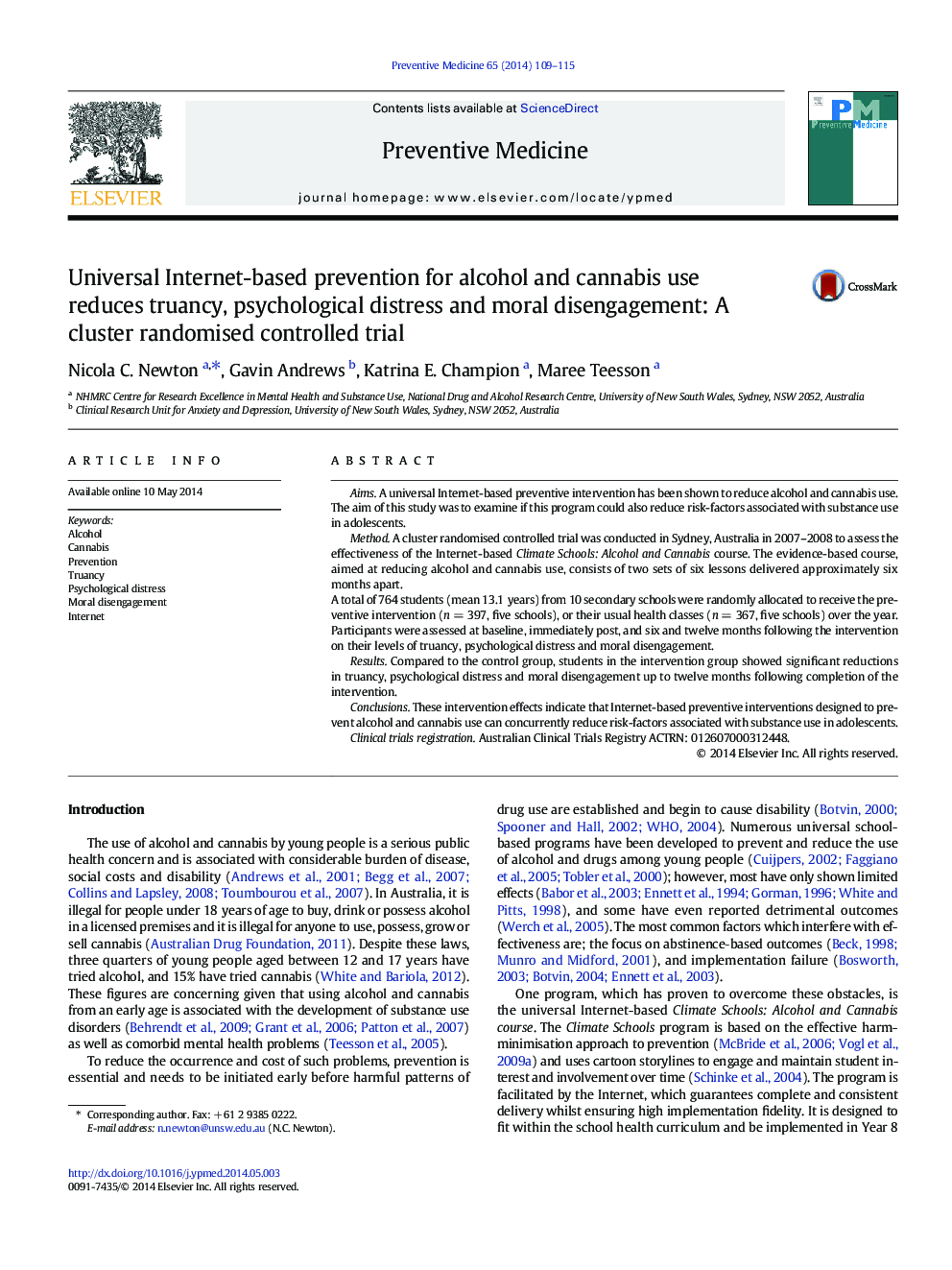| Article ID | Journal | Published Year | Pages | File Type |
|---|---|---|---|---|
| 3100510 | Preventive Medicine | 2014 | 7 Pages |
•A cluster randomised controlled trial was conducted among students.•Students showed reduced truancy, psychological distress and moral disengagement.•Internet-based preventive substance use interventions can also reduce risk-factors.
AimsA universal Internet-based preventive intervention has been shown to reduce alcohol and cannabis use. The aim of this study was to examine if this program could also reduce risk-factors associated with substance use in adolescents.MethodA cluster randomised controlled trial was conducted in Sydney, Australia in 2007–2008 to assess the effectiveness of the Internet-based Climate Schools: Alcohol and Cannabis course. The evidence-based course, aimed at reducing alcohol and cannabis use, consists of two sets of six lessons delivered approximately six months apart.A total of 764 students (mean 13.1 years) from 10 secondary schools were randomly allocated to receive the preventive intervention (n = 397, five schools), or their usual health classes (n = 367, five schools) over the year. Participants were assessed at baseline, immediately post, and six and twelve months following the intervention on their levels of truancy, psychological distress and moral disengagement.ResultsCompared to the control group, students in the intervention group showed significant reductions in truancy, psychological distress and moral disengagement up to twelve months following completion of the intervention.ConclusionsThese intervention effects indicate that Internet-based preventive interventions designed to prevent alcohol and cannabis use can concurrently reduce risk-factors associated with substance use in adolescents.Clinical trials registrationAustralian Clinical Trials Registry ACTRN: 012607000312448.
